The best new albums this week
The apocalyptic sound system carnage of The Bug heads up our selection of key LPs this week
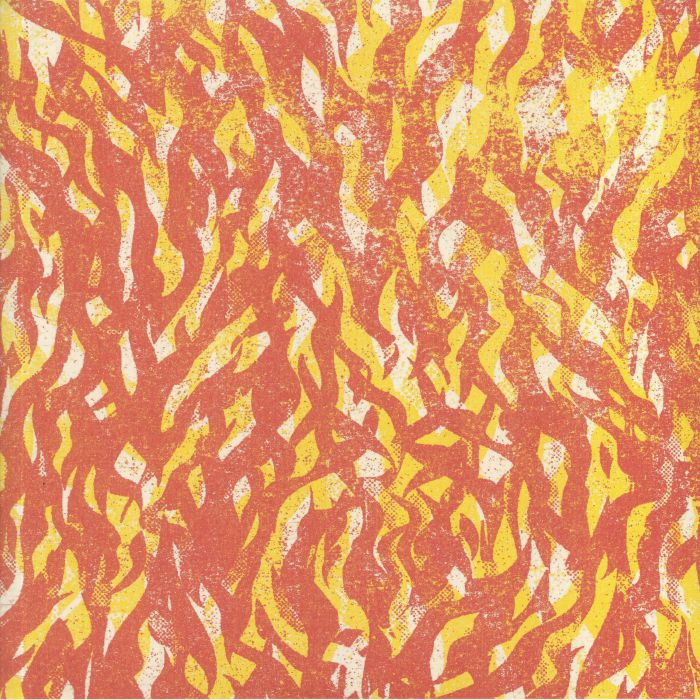
ALBUM OF THE WEEK
Of the four basic elements (besides Earth, with whom he has already worked), fire is the one most pertinent to Kevin Martin, aka. The Bug. A spreadable and dangerous rapidly oxidizing chemical reaction, which manifests as a plasma, fire has been associated with hard-hitting bangers throughout dance music history, touching on the flammable, primal forces within us.
Fire is an agent of destruction, but it still has constructive capabilities. As Martin puts it himself, fire has the ability to burn and scar the skin for life, altering one’s way of relating to the world, much like a groundbreaking live show. Kevin divulged: “WHAT the FUCK?’ is the reaction I want – insane is a good reaction especially at a time when there’s so much control in how people consume music and are pacified culturally”.
From clearing hornets’ nests to burning down effigies, fire has a de-pacifying ability. Martin’s creative output has always been founded on ideas of dub, roots, Earth, fire, and revolution, all concepts associated with either inflammation or upheaval. It would be wrong not to mention 2008’s ‘Skeng’, the dubstep classic that set systems and worldviews alight with its ragga-toned mass and raw-edged beats. It’s an energy that has remained consistent. Everything The Bug does, like a flaming Midas touch, sets on fire, whether it be his collabs with JK Flesh as Techno Animal and Zonal (‘Bass Concussion’ is arguably our favourite firestarter), or his aptly-titled work with Burial, Flame 1 and 2.
If working with Burial was just a spark flickering somewhere within William Bevan’s misty sonic universe, then ‘Fire’ is the gasoline-trailed explosion from that spark. The album is a slow napalm explosion, not only about the circumstances of the past year, but also Martin’s personal journey from reclusive sound obsessive to family man. With all 14 tracks featuring a different vocalist from the UK’s most cutthroat scenes – from ragga to grime – the sheer vocality on ‘Fire’ is like a dragon’s breath, spewing forth pent-up frustrations, anger at the Tories, and sub-flames from Martin’s own psyche.
Arguably one of the most politically conscious grime acts, Martin’s favourite MC Flowdan dominates, delivering an oppressive call for Babylon and asking us to “send for the stretcher” on ‘Pressure’. Equally, there’s a bangerized dubstep war cry on ‘Bomb’. These kinds of tunes seem to channel the overheated energy of modern dubstep classics like Kahn’s ‘Abattoir’, but The Bug, as ever, makes them sound earthier, foggier. And while ‘Fire’ is full of explosions, other tracks sound much more subdued, like we’re wading through post-catastrophic smoke, rubble and radioactive fallout. On ‘The Fourth Day’, a murky nightscape envelops a monologue delivered by the poet Roger Robinson, who imagines an immediate, dystopian post-lockdown future: “after the fourth year of being cooped up… the robots started delivering the food. There was nowhere else to go, no-one to complain to.”
On that note, the fear of technology scrapes at this album’s edges. The lead synth line on ‘Demon’, featuring Irah, sounds chiptune-like, but Martin adds so much character and distortion to it that it sounds ominous and looming, like Robinson’s imagined robots that ‘terminate’ the unvaccinated. As much is true for ‘Ganja Baby’, featuring main raggamuffin man Daddy Freddy, a bubbling digi-dancehall cut covered in laser sounds and 8-bit sucker punches.
The Bug as ever demonstrates his willingness to work with fresh, exciting faces. Much like his much-loved Death Grips collab, our favourite track has to be ‘Vexed’ with Moor Mother, who lays down a megaphoned-in, righteously angry series of bars – “y’all better run from me, mo’fucker I’m vexed”. Equally, the grime undercurrent is both titanic and underground, like a flesh-tearing sonar pulse. besides Flowdan, there’s the ever underrated Manga Saint Hilaire on ‘High Rise’, the album’s clearest and cutest voice. He raps about the stress of living in a high-rise block – “we can’t take the high road / we just screw face and explode / we live in the flats in the high rise” – alluding cleverly to both the tragic Grenfell tower fire, and J.G. Ballard’s dystopian epic.
On the final track ‘The Missing’, Roger Robinson proves this point with a bittersweet eulogy for Grenfell. “A hundred people start floating from the window of a tower block / from far enough away, they could be black smoke from spreading flames.” With this thought in mind, ‘Fire’ has a great, angry deal to say about ostracism. From the allusions to prejudices that cause detriment to the black community, to the many voices of the marginalised soundsystem culture adorning each track, it’s not just about inspiration, lockdown, and Martin’s personal life; ‘Fire’ is protest music, righteous rage.
JIJ
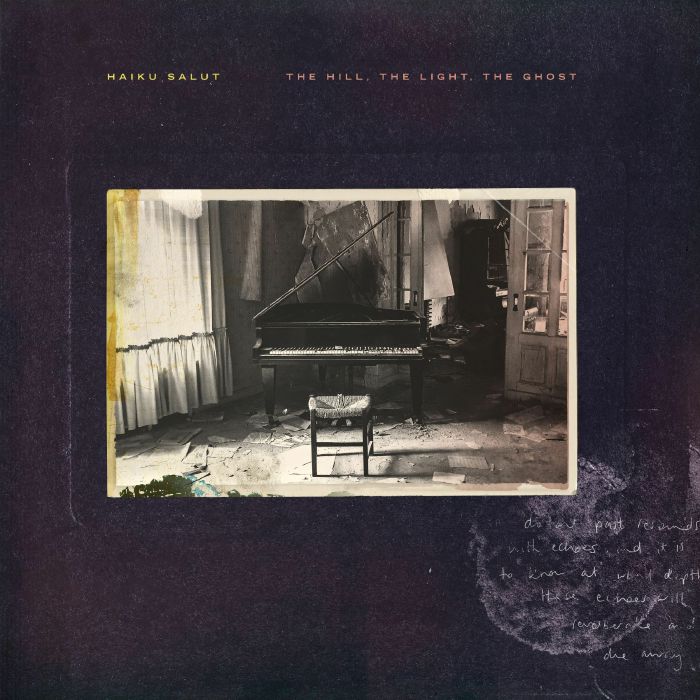
Haiku Salut – The Hill The Light The Ghost (Secret Name)
From Japanese Yurei to White Ladies, spectral folklore throughout the world is obsessed with sadness and melancholy. UK ambient trio Haiku Salut – hailing from the gothic, old English county of Derbyshire – are very in tune with this cry from beyond the grave. Their debut album out this week, ‘The Hill The Light The Ghost’, has until now been prefaced by ghostly advance singles and and lamplit live shows.
Said process – of recording, composing and performing in dim and flickering lights – is, for trio member Sophie Barkerwood, paramount to evoking the spectral. This album’s musical journey began with a handheld Tascam field recorder. Barkerwood later explained the hauntological effect of memory in digital recording: “We… began actively searching for ghosts in the world and framing the songs around their qualities… You could say the record is a miniature exploration of sound in relation to memory. Each piece is intimately connected to a place in time.”
This album is completely removed from the creepy or spooky associations with spectrality. Rather than wailing woos or rattling chains, the first track ‘Wide Awake’ opens with dawn birdsong and gut-wrenching strings, like a soundtrack to waking up and realising you’re dead. It becomes clear over the album’s course that, rather than building haunting soundscapes from the perspective of a ghost hunter, this is the mournful self-reflection of a ghost itself. Barkerwood’s field recordings – like the glass tinkles on ‘We Need These Beams’ or the soily rustlings of ‘Try Again And Again And Again’ – become looping beds for the piano, synth and string compositions that dance on top of them.
It recalls David Lowery’s 2017 film ‘A Ghost Story’: like the aeon-spanning presence of that film’s ghost in its place of death, this music spans incredible passages of time, with each field-recorded soundscape acting as a sonic fetter for the ghost that composes its music around it. It’s no wonder an abandoned German house formed the bulk of the album’s recording; it contained a ruined piano (sampled on ‘Entering’) and a barren urology clinic in the basement. Even kidney disorders can be worth lamenting!
JIJ
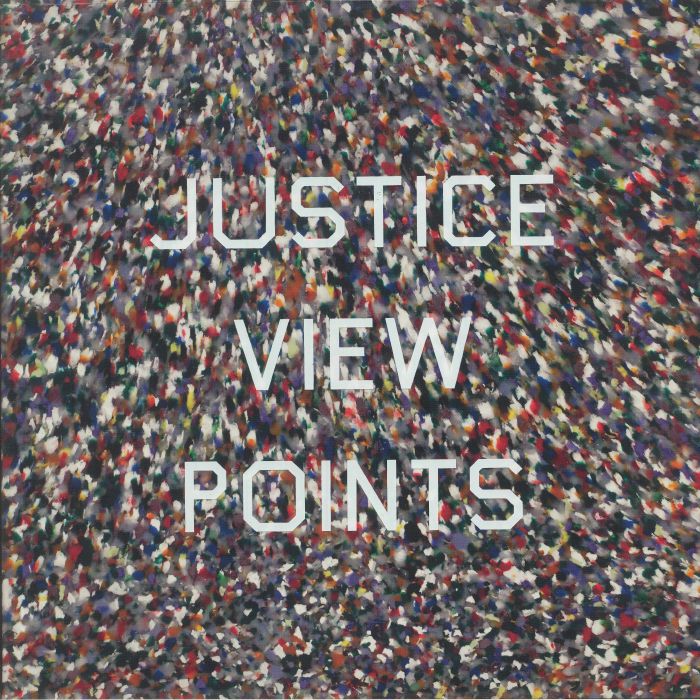
Justice – Viewpoints (Hydrogen Dukebox)
Anthony Bowes is one of those artists whose considerable output is sometimes at odds with his prominence in the annals of jungle and drum & bass. Tripping through his albums reveals a producer who was looking beyond the trappings of the dancefloor and revelling in the expressive potential of D&B as a strain of home-listening electronica. He might be best remembered for ‘Soothe My Soul’, but his debut Justice album Viewpoints reliably demonstrated the breadth of his style in a similar fashion to the way Photek’s Modus Operandi or Krust’s Coded Language widened the remit for artists who were already lauded for their club records.
Hydrogen Dukebox have worked with Bowes numerous times, and now they’re picking up Viewpoints and giving it a fresh airing in 2021. The artwork has been updated and the running order rearranged, now leading in with the sweet ambient roller ‘Aquisse’ and setting the tone for an explorative trip through machine rhythms and artful synthesis with a 90s tint. ‘Aeronautics’ ably demonstrates the horizons Bowes was looking towards outside rote D&B, hitting on a broken beat techno variation which lands somewhere between Jacob’s Optical Stairway and Metamatics – a fine middle ground for those who know.
There is plenty of drum & bass to be savoured on Viewpoints – it’s not a complete plunge into abstraction. ‘More Air’ is a fluid, exquisitely sculpted workout and ‘Gemini (reprise)’ steps along at a steady clip with a moody Bristolian vibe. But it’s when Bowes pushes further out the album truly soars. ‘Film’ darts through off-key, minimal passages with that noirish touch that defined some of the best D&B of the era. ‘Breaker One Nine’, which originally opened the album, offers up the blown-out, airy Justice take on downtempo breaks. ‘Perspex’ offers up a unique approach to low slung 808 beats and patient ambience, and ‘Brasilia’ perfects smoked-out funk loop simplicity as a short but poignant finisher to a classic D&B album which rich in investigation and inspiration.
OW
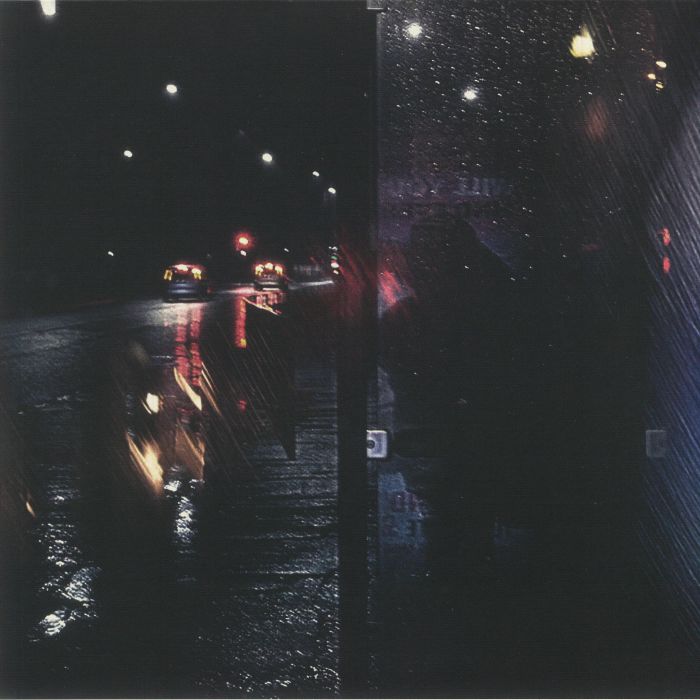
Space Afrika – Honest Labour (Dais)
Some artists like to jettison all reference points and plunge into the unknown, while others manage to imbue a very particular sense of time and place into their music. In their more recent patchwork, postcard-and-Polaroid suites of sound, Space Afrika have indicated they wish to evoke the strange malaise of contemporary Britain, or ‘UK energy’, as they put it. That could be interpreted as a musical signifier, but in the context of their new album, Honest Labour, it feels more like a reference to the country as a whole. In the same way Burial created an abstract sound which became unshakably attached to romantic visions of dreary night bus rides through London, Space Afrika have conjured up a sonic which runs its fingers across the texture of every key-scratched tag on every bus shelter, catches the run-off from an overflowing, mossy gutter and breathes in low-lying fog at cloud-covered daybreak.
At certain points in Honest Labour, Josh Reidy and Joshua Inyang make pointed use of what sounds like African-American people reflecting on love, mental wellbeing and other personal issues – sincere elements woven into the album which might well alter your perception of the place in which it resides. But then you also get Blackhaine’s distinctly UK flow on ‘Bee’, and Jasmine ‘Guest’ Butt’s disarming singing on multiple tracks. Kinsey Lloyd channels Linton Kwesi Johnson’s rhythmic lilt on ‘U’, and Bianca Scout’s heavenly voice folds around a grungy bass guitar twang on the weightless ‘Girl Scout Cookies’. The expansive cast of collaborators help render a complicated, unwieldy Britain, each fleeting moment an intimate vignette within an epic tapestry.
Throughout all of this meanders Reidy and Inyang’s music, as flexible and multifaceted as it is beholden to a downcast mood. There’s a wilful embrace of classical composition, as aching strings pirouette through the album before coming to rest on the disarmingly beautiful closer ‘Honest Labour’. Such outright musicality faces off with scratchy sampling and field recording, while gauzy sweeps of synthesis mark one of the few clear trails leading back to the earlier dub techno inflections Space Afrika started out with. Although this is framed as an album in contrast to last year’s standout Hybtwibt? mixtape, it moves with a confessional glide similarly felt on Joy Orbison’s recent still slipping vol 1. It’s a valid approach for presenting a more nuanced artistic vision, coming on like an endearing but downhearted spectrum of impulses and experiences travelling through a damp, Autumnal Britain.
OW

Best Available Technology – Inscape Routes (The Florist’s Mum)
Kevin Potter’s never one for immediately obvious music, but there are times when his murky, half-hidden works as Best Available Technology step a little closer to the light. On this new album for The Florist’s Mum, it feels like there are more discernible angles to grab onto which help you navigate his uniquely dubbed enclave. As you might well have guessed from the title Inscape Routes, this is an album of recent creations from the lockdown era, and perhaps in some way the stay-indoors situation pushed Potter’s music outwards when it was already so internal in nature.
There’s still plenty of furtive surrealism to stumble through on Inscape Routes – ‘Arc Stroked’ crackles and stutters with characteristic scuffs from the middle distance, and ‘Observation Hill’ deals in tape-op hauntology with a stern demeanour. But ‘Tracer Leak’ feels positively forthright in comparison as its inky chords fill the space in the mix. ‘Palao’ staggers forwards on a fulsome bass arpeggio and dog-tired beatdown, and ‘Division’ creates a curiously funky strain of reduced dub. The prevailing mystique of BAT remains, all peeling paint and faded signage, rickety doors and dust drifts, but the sun is definitely shining on this particular day in the deserted town Potters’ sound squats in.
OW
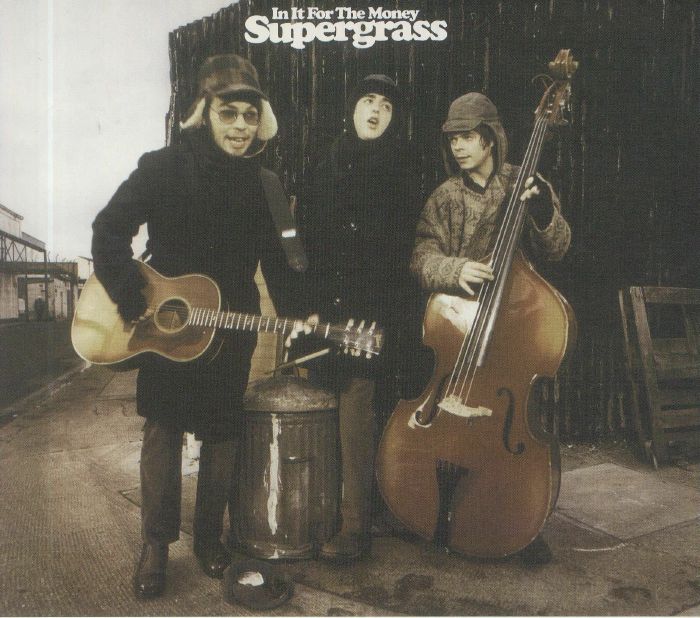
Supergrass – In It For The Money (expanded edition) (The Echo Label)
There are expanded editions – and then there are expanded issues like this, with a whopping 53 tracks across various versions. Everything from remixes – the vinyl version comes with an extra 12″ featuring a Bentley Rhythm Ace remix and the sublimely groovy, dreamy trip hop workout ‘The Animal’ – to a whole catalogue of live recordings on triple CD package.
The Oxford trio are usually lumped in with Britpop and while they’re certainly of the same vintage, they don’t exhibit any of the movement’s downsides: the plundering of 60s classics, the rose tinted nostalgia. Theirs is an altogether more individualistic approach, often carried along by youthful exuberance but also by a knack for songwriting which manages to be as infectious as a certain Covid variant but throws in enough curveballs and mould-breaking moments that it never seems brazen or obvious.
The likes of ‘Sun Hits The Sky’, with its mixture of Cardiacs-style quirkiness and unexpected Moog sonics, the Madness-meets ‘Seargeant Pepper’ psychedelia of ‘Sometimes I Make You Sad’ or the updated glam rampage of ‘Cheapskate’ all show exactly why they have weathered the storm of changing fashion and remained as potent and popular as they were in their so-called heyday. This is top stuff, no doubt about it.
BW
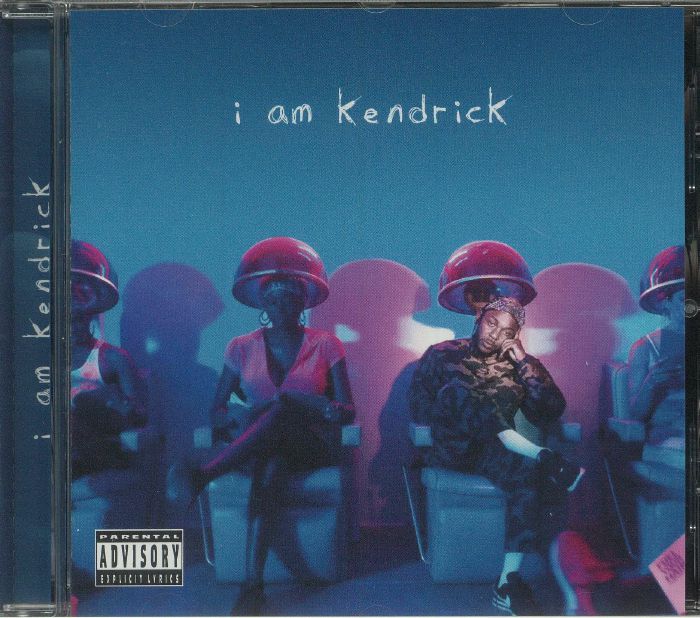
Kendrick Lamar – I Am Kendrick (Egypt)
Given the length and success of his career – 13 GRAMMY awards, packed arenas, sold out shows globally, millions of albums sold and so on – it’s little surprise to find that Kendrick Lamar’s latest full-length, I Am Kendrick, is heavy on high-profile collaborations and big-name guests and less on new music many have been anticipating. While he remains the central figure, rapping and singing confidently and surprisingly thoughtful about life including friendships, hardships and love with its complicated emotions, while keeping in mind the quality of all the beats he’s riding (which range from dense and intense, to jazzy and intricate, via a swathe of trap-influenced, ten-ton heavy bass riddled rhythms) and the guests (SZA, 50 Cent, J Cole, Big Sean, Jeezy and longtime friend Jay Rock all feature) does genuinely lift the album to another level, even if you can’t help but feel like it does feel like another mixtape.
Never straying away from his usual topics including political discourse and the elusive ‘American Dream’, Lamar still continues to shine among his features as he goes back to back and delivers on every track. Composed of mostly B sides and tracks from mixtapes, fans can finally rejoice at having all these songs collected and curated perfectly to follow one another in one place.
It can easily be reflected upon as a frank follow up from 2017’s DAMN however as it is, and no matter how good it is, it may not receive the same accolades due to the nature of many tracks already being in circulation. Who knows, maybe it’s meant to whet the appetite before we are finally introduced to the grand finale. Whenever that may be. However when that time does come, let’s just hope it’s a bit more than just a taste of what’s to follow already.
AY
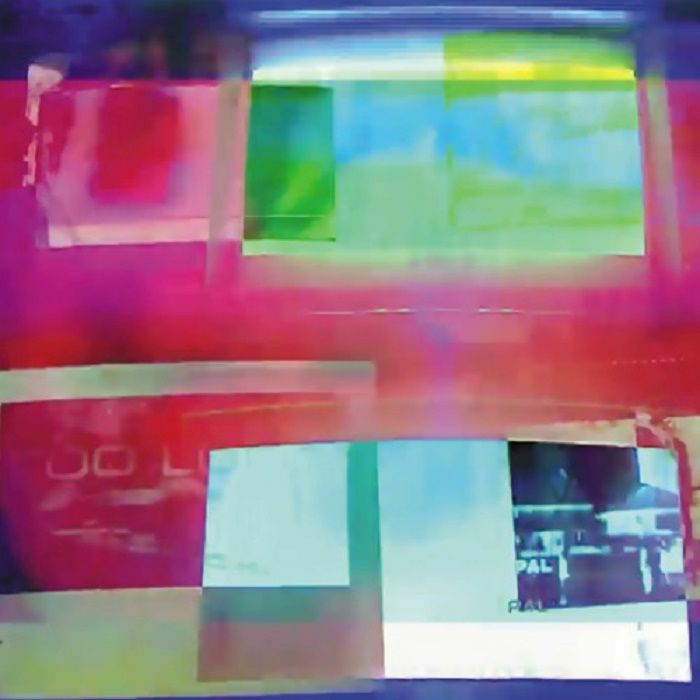
Stigma – Too Long LP (Pessimist Productions)
Downtempo beats sound their best when given a nihilistic tilt towards the darkside. Think of the lairiest end of the illbient spectrum, the deathly rattle of distorted funk breaks colliding with the metallic snarl of industrial, the sound of a thousand coffee tables burning under the weight of their own detached cool. As a Bristol resident, Kristian Jabs is surely conscious of the loaded legacy of trip hop, which at its best still resonates with urgent cross-cultural energy, and at its worst represents the peak of anodyne, major label co-opting of the underground. Jabs’ productions as Pessimist have long skirted the murkier end of trip hop as much as his more widely recognised strain of D&B, with downtempo tracks cropping up in the midst of excellent, pitch-black long players on Blackest Ever Black.
Now, alongside other style-specific projects like Boreal Massif and Soft Boi, Jabs unveils the Stigma alias as a devout exercise in low slung, death rattling trip hop. Just to make clear he’s not messing about, he’s called on heavy hitters like Justin K Broadrick, Taylor E Burch and Karim Maas to feed into the slow-stepping frenzy. It’s a sound world he’s completely at home in, throwing up slabs of gloomy bass and rasping drum pressure like it were wallpaper for tortured goth b-boys and girls. Burch’s dead-eyed delivery on ‘Advertised’ only adds to the magnificent malaise – no surprise given her roots in Dva Damas and working with Tropic of Cancer. Submit to the darkness, it’s so very seductive.
OW
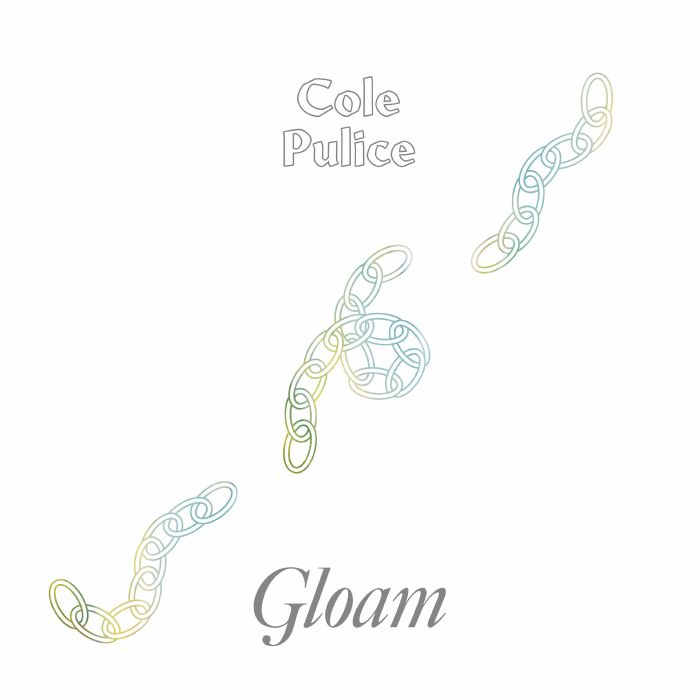
Cole Pulice – Gloam (Pingipung)
Hailing from Minneapolis and with some impressive credits to his name, Cole Pulice is pushing the saxophone in interesting directions. Playing with the likes of Bon Iver and Godspeed You! Black Emperor got him started, while more niche projects such as Iceblink and LCM have seen him expanding into more experimental realms. After Moon Glyph released Gloam as a cassette-only album last year, now Pulice’s debut solo album has been picked up by German label Pingipung for a vinyl edition and a wider audience. With other adventurous sax players like Sam Gendel and Ben Vince doing the rounds at the moment, it’s a fine time to appreciate the sonic possibilities of the instrument in greater detail.
If Puliceplaces the saxophone front and centre throughout, it’s not always immediately obvious thanks to the generous slathering of effects he adopts. Even when he shrugs off the shroud of electronics to let the instrument shine on its own terms, as on ‘Bone Prisms’, his playing is urgent and agile, keen to avoid pitfalls of convention. The tension between the organic instrument and its processing is rendered most starkly on the opening passage of ‘Neurochrome’, when Pulice wilfully shows the untreated sax being bent and folded by layers of pitch-shifting until it becomes more like a resonant, albeit slightly broken, organ. Gloam is not just a technique record though – in the rich tones Pulice elicits, he creates a listening experience which courses through you in waves too fierce to be deemed ambient.
OW
This week’s reviewers: Ava Yusuf, Oli Warwick, Jude Iago James, Ben Willmott